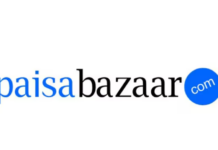By Mr. Kalyan Basu, MD & CEO of A TReDS
Introduction:
While MSMEs form the backbone of the Indian economy, their growth has often been impeded by the paucity of funds and access to formal banking channels. Frequently, MSMEs have to brave long credit cycles to receive their payment which constrains their growth. This is despite the fact that MSMEs play a crucial role of job creation, providing employment for 117.1 million persons and accounting for 37.5 per cent of the country’s GDP, according to the MSME ministry.
Delayed payments and working capital crunch are words which any MSME owner lives with.Their limited financial resources (credit history and collateral)force them to take loans from informal sources. These informal sources which usually are money lenders extend loans at a very high rate of interest, to the tune of 26% to 35%. Such high rate of interest leads to further deterioration in financial health of the MSMEs.
While the banking system has come up with numerous products from time to time to help out the MSMEs, the legacy nature of banking business doesn’t allow bankers to make the loan sanctioning process easier. . Any request for loan has to go through the process of evaluating the proposal, creating an appraisal note, sending the proposal to senior and then finally a decision is taken whether to disburse the loan or not. This whole process takes a minimum of 1 month which prevents the MSMEs from getting required financial assistance on time leading to high cost market borrowing or a missed opportunity. Factoring of receivables is a new avenue for MSMEs to get working capital finance quickly at a better rate and without a cumbersome and time consuming sanctioning process.
Factoring is a financial Transaction in which the business organization sells its book debts / unpaid invoices/ receivables to the Financial Institution at a discount.
Background
Looking at the crucial role played by MSMEs, RBI appointed a working group which submitted its report in November 2009, this was followed by a concept paper in 2014 andultimately final guidelines for setting up and operating TReDs platform were released. Three entities received licence, one of themA.TredsLtd. (a joint venture between Axis Bank Ltd. and mjunction services ltd.) received the licence on 29thJune 2017 and went live on 5th July 2017.
Trade Receivables Discounting Systems (TReDS) is an electronic exchange that allows transparent and online selling of receivablesby MSMEs through Factoring. The process is also commonly known as bill or invoice discounting, where a financier, typically a bank or a NBFC Factor , buys a bill/ invoice from the seller of goods before its due date of payment by the Buyer at a discount. . In other words, a seller gets credit against a bill/ invoice which is due to him at a later date. The discount is the interest paid to the financier by the Seller.
Let us understand this process better and know how factoring benefits the MSMEs. Invoicemart , the TREDS platform promoted by A.TREDS Ltd. , offers both Factoring as well as Reverse Factoring of invoices.
Factoring:
A factoring transaction begins when a Seller uploads an invoice on the platform and creates a Factoring Unit (FU). An FU contains necessary details of the invoice in digital format and must be accepted by the Buyer before it is sent to Financiers for bidding. The Seller then chooses the most suitable bid and receives funds from the Financier within 48 hours. On the due date of payment, the Buyer pays the outstanding amount to the Financier.
Reverse Factoring
A Reverse Factoring transaction begins when a Buyer uploads an invoice on the platform, on behalf of the Seller and creates a Factoring Unit (FU). An FU contains necessary details of the invoice in digital format which is sent to Financiers for bidding. The Buyer then chooses the most suitable bid. The Seller receives funds from the Financier within 48 hours. On the due date of payment, the Buyer pays the outstanding amount to the Financier.
A buyer is a large corporate, seller is the MSME and the financier is a bank or an NBFC Factor. All three of them are required for the factoring transaction to be completed.
Advantages
It is imperative to understand the benefits of a platform like Invoicemart over regular bill discounting. Firstly, an online platform allows the seller multiple Factors (financiers) to choose from. The seller is not restricted to one Factor that he visits or he has an on-going relationship with. The process of uploading an invoice is paperless and the seller does not require uploading the documents multiple times. Apart from one-time registration the whole process is paper less and allows the seller to choose from variety of interest rates offered by the financiers on-board the TReDS platform. It is without recourse to the Seller and does not require any collateral.
The lowest interest rate would be an obvious choice and this allows the seller to get the best deal in the most transparent manner which would have been impossible had he taken the traditional method of bill discounting / factoring.
It is practically impossible for a MSMEs owner to visit ten different bank branches in order to get the best rate. With an electronic TReDS platform at his disposal, he can sit at the comfort of his office and find the most competitive rate, spending more time in growing his business rather than finding sources of finance.
A survey which was carried out across the MSMEs, came out with the finding that an MSME does 2/3rds of its business with fellow MSMEs, before the finished good is produced and sold to the large corporate buyer. To explain it better, think about the smallest or the first seller in this whole chain.
To understand better, let’s take an example of an automotive OEM, a car is made of several parts assembled together at the factory of a car manufacturer. Before the final parts arrive at the car maker’s facility there are multiple assemblies and sub-assemblies who together make a car part for e.g. a wiper, a tyre or a bumper. Hence from the time something as minor as a rubber gasket is produced till the actual car is built, shipped to the car dealer and finally sold to a customer, there is a long gestation period. This journey of a raw material turning into a car lasts a few months.The sole proprietor micro or small enterprise which made the gasket would have had to wait a long time, till the car manufacturer realises the cost of the car and pays him for the gaskets. This wait has cost attached and could potentially put him out of business as he has to borrow at a higher cost to sustain production. Thus there is a need of working capital till his payments are realised.
Essentially, such loans require quick approval and disbursal which is not possible in case of traditional banking. Growth of such units are also restricted due to increasing demand for collateral by the Financiers. Another glaring reality of approaching for such loans is the high level of rejection. A bank has to go through many proposals before he can give approval to one such case. So acquiring MSME business is quite costly for the financiers.
. Various studies corroborate the fact that, strong credit history and collateral are not something which is available with MSMEs and this becomes one of the main impediment for MSMEs in accessing Finance from the formal banking channel.
Thus, TReDS is immensely beneficial source of alternate lending for MSMEs as it comes without recourse to the seller and provides instant liquidity at rates which only top rated corporates have access to. The Seller also need not provide any collateral to the Financier.
Conclusion
By bringing an online platform for factoring of trade receivables, RBI has initiated a major move in securing the financial stability and future of the MSMEs, popularly known as backbone of an economy.
Still, there is a long way to go for factoring to become a main stream mode of financing as a large chunk of MSMEs are not even aware that such an exchange . Factoring to be successful needs reintroduction of Credit Insurance for the Factors. Introduction of Credit Insurance for MSME exposure on TREDS Platforms will be key enabler to achieve the full potential of such platforms and increased flow of finance to MSMEs.
How to Participate
To join Invoicemart, all you need to do is to sign a one time Master Agreement with A.TREDS and ensure that the Buyer is already registered on the Platform. For more details, please write to us at helpdesk@invoicemart.com, or call us at 022 6235 7373 / 4975 7373.Communication address: A.TREDS Ltd., A3, 11th floor, Ashar IT Park, Road No. 16Z, Wagle Industrial Estate, Thane (West) – 400 604.
Corporate Comm India(CCI Newswire)

































